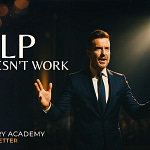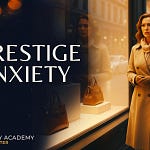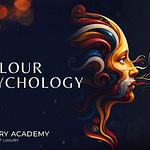Someone asked me this week if I was a qualified DiSC or MBTI practitioner. Which, I said, is rather like asking a surgeon if he’s certified in crystal healing.
They meant it sincerely, of course, but I couldn’t help being mildly insulted.
There’s something almost cultish about the attachment some companies have to these tests, DiSC, MBTI, Insights, Enneagram, StrengthsFinder, all claiming to map your inner wiring through a handful of multiple-choice questions.
Entire teams end up colour-coded like a bag of Skittles. People start sentences with “Well, I’m a blue,” or “I’m a red,” as though that explains everything. It becomes a tidy way to excuse bad behaviour or disguise incompetence.
They look scientific. They’re not. Myers and Briggs were a mother and daughter with no background in psychology. Marston, who gave us DiSC, also invented Wonder Woman and the lie detector. The Enneagram began as a spiritual diagram. StrengthsFinder, for all its data-sounding language, has little real evidence behind it.
What they all share is irresistible simplicity, four types, sixteen boxes, or a colour chart to explain everyone you’ll ever meet. Real personality psychology is far messier.
The Big Five model, which actually has evidence behind it, deals in spectrums, not types, and accepts that context changes everything. But that’s unsatisfying, because people prefer a label that feels certain, neat, and saves them from thinking too hard about the fact they behave differently at work, at home, and after a few glasses of wine.
These tests endure because they offer a sense of belonging. They give teams a shared language that feels safe.
And to those who say, “but they start great conversations,” I’d ask, then why are they used to decide who gets hired or promoted? That’s not conversation, it’s stereotyping.
What’s really going on is our craving for tidy answers, even when they’re wrong. These tests hand us a palatable story about who we are. The story feels so comforting that accuracy rarely gets a look-in.
The irony is that most of them measure nothing but your own self-perception. They echo back whatever you tell them. Think you’re brilliant? The test agrees.
Take it again next month and you might be someone else entirely. They’re also remarkably easy to fake if you already know the answer your manager wants to see.
Nobody ever finishes one of these and is told, “actually, you’re a nightmare to work with.” They’re designed to flatter, much like a horoscope.
And for the record, completing a two-day course and paying a licence fee doesn’t make you a behavioural scientist.
Chat to you next week
Paul










